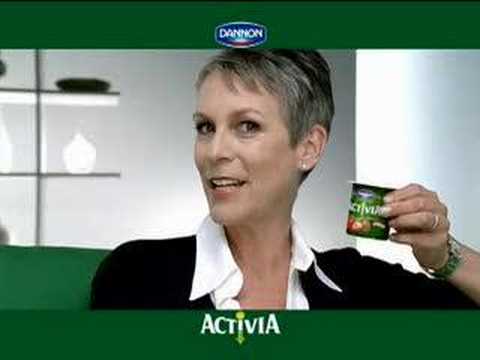Every morning I am awaken to the sound of my preprogrammed espresso machine grinding beans. With young kids at home and my slowly aging body, this is a necessity. Anyone with kids can certainly relate. However, before departing for work, my wife and I have a shot of lemon juice for a number of health reasons. Last week I visited the dentist and apparently the acidity from the lemons was slowly corroding my teeth. I neglected to mention that we also add a splash of vinegar to the juice for added benefit. First time I ever heard my dentist laugh and swear. I guess I need something alkaline to balance all of the acidity.
Maggie Angst of the Insider reports:
Adding a lemon wedge to your water can help shake up the dull beverage and help you reach your recommended 10 to 15 cups of water a day.
Lemon water is touted by experts and celebrities for its long list of benefits including preventing dehydration, assisting with digestion, and supporting weight loss.
But, like most things in life, you can have too much of a good thing.
Here are six dangerous things that can occur when you drink too much lemon water. Keep in mind most of these would take quite a bit of lemon juice before becoming a problem.
It can damage your teeth.
Although a squeeze of lemon in your water every day may seem harmless, it can wreak some major havoc on your pearly whites.
Since lemons are highly acidic, frequent exposure can erode your tooth enamel, the American Dental Association warns. If you’re not sure what eroded enamel would look like, imagine your teeth with a yellow tint and a coarse feeling when you touch them to the tongue.
If that doesn’t convince you to skip the lemon wedge, at least try to drink it out of a straw to cut down on the acid exposure on your teeth.
It can upset your stomach.
Too much of anything is a bad thing, even when it comes to lemon water.
While lemon juice contains a wide range of health benefits, squeezing too much in your water can cause dangerous side effects to your health including worsening ulcers and developing GERD, Livestrong reports.
GERD, also known as gastroesophageal reflux disorder, is triggered by acidic foods like lemon juice and can cause heartburn, nausea, and vomiting.
Lemon skins serve as a host for unpleasant organisms.
If you’re a germaphobe, you may want to steer clear of putting lemon wedges in your water — at least in a restaurant.
In a 2007 study in the Journal of Environmental Health, researchers tested the rinds and flesh of lemons from more than 21 restaurants. In conclusion, they found that nearly 70% of the lemons contained organisms such as E. Coli, which can cause vomiting and diarrhea.
To avoid the germs, squeeze the lemon instead your drink instead of dropping the whole wedge inside your glass.
Using concentrated lemon juice can cause cavities.
Growing up, you were probably instructed not to eat too much candy or you would get cavities. Well, it turns out candy isn’t the only culprit of tooth decay.
According to Healthline, cavities are a result of damaging bacteriathat digest the sugar in foods and produce acids. Although lemon water on its own may not lead to the development of cavities, if you typically sweeten it with sugar or use concentrated lemon juices instead of a freshly squeezed lemon, then you could have a problem on your hands… and teeth.
You may worsen canker sores.
Nothing is worse than waking up to the painful irritation of a newly formed canker sore in your mouth.
While most canker sores will clear up on their own within a week or two, coping with the uncomfortable annoyance for even that long can feel like forever.
If you drink lemon water while dealing with a mouth sore, you’re probably making it worse without realizing it. Lemon water can do more damage to your mouth than just decay your tooth enamel, it also has the potential to exacerbate canker sores and irritate mouth sores, according to the American Dental Association.
Citrus fruits may trigger migraines.
If you deal with headaches or migraines of any nature, it’s safe to say you don’t want to take any chances by eating or drinking something that could trigger them. And citrus fruits, including lemons, are among that category.
Some studies over the years have discovered a connection between migraines and citrus fruits, while a handful of others have not proven a link. Still, citrus fruits like lemons are on doctors’ radars as a possible trigger for migraines, Rebecca Traub, a neurologist with ColumbiaDoctors, told Health.


 complain about threats to their food safety,"
complain about threats to their food safety,".jpg) Nobody’s happy.”
Nobody’s happy.”.jpeg) • Casa Imperial Fine Chinese Cuisine, 4125 Steeles Ave E.
• Casa Imperial Fine Chinese Cuisine, 4125 Steeles Ave E. general from 39 states.
general from 39 states..jpg) sustainability a long time ago.
sustainability a long time ago..jpg) was closed by the Southern Nevada Health District.
was closed by the Southern Nevada Health District. don’t end up in hospital, like 27 of the 93 sickened by E. coli O157:H7 at Godstone Farm petting zoo in 2009 in the U.K. (two of those sick kids are pictured, right)
don’t end up in hospital, like 27 of the 93 sickened by E. coli O157:H7 at Godstone Farm petting zoo in 2009 in the U.K. (two of those sick kids are pictured, right).jpg) open farm is extremely low, particularly if children are encouraged to wash their hands thoroughly after touching animals."
open farm is extremely low, particularly if children are encouraged to wash their hands thoroughly after touching animals."